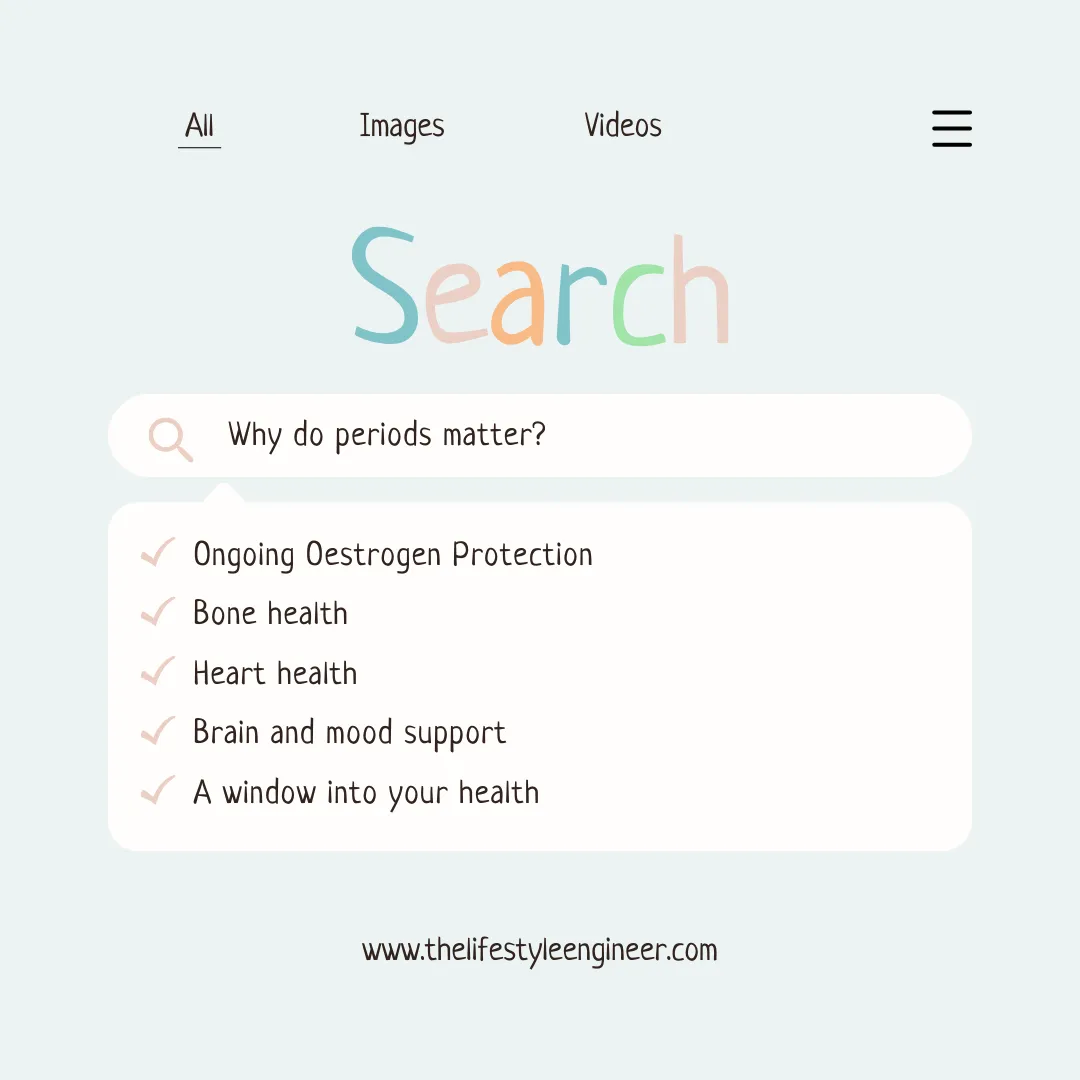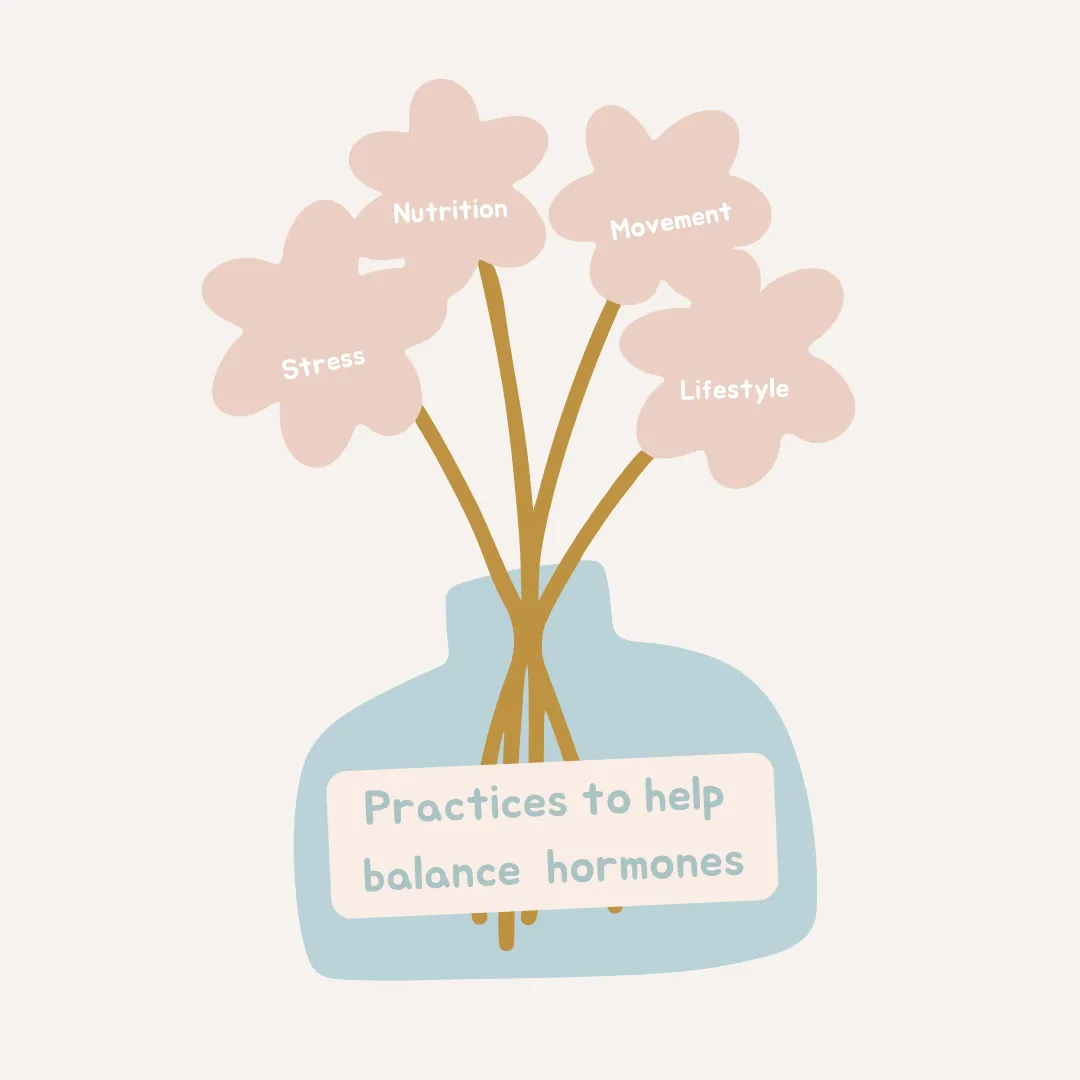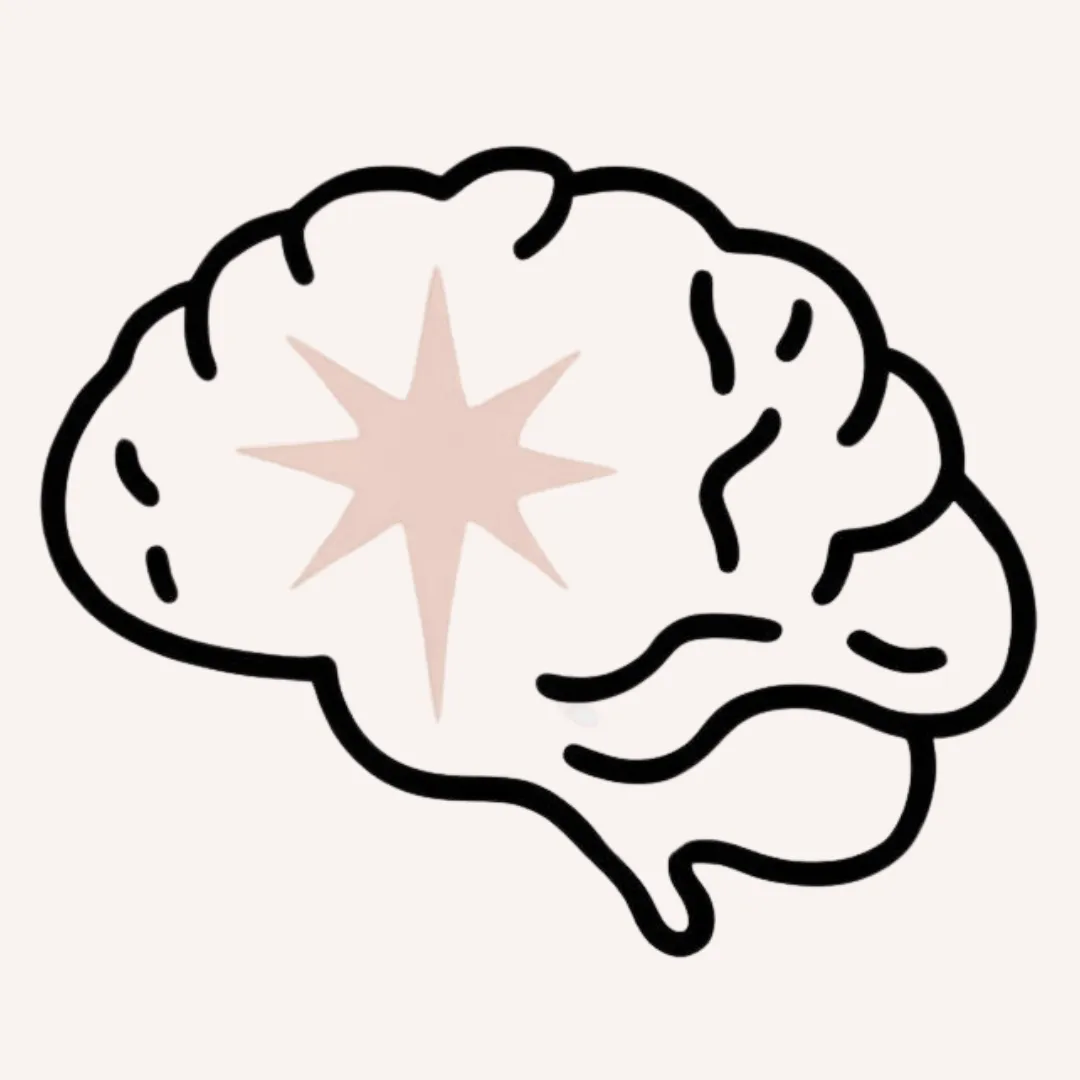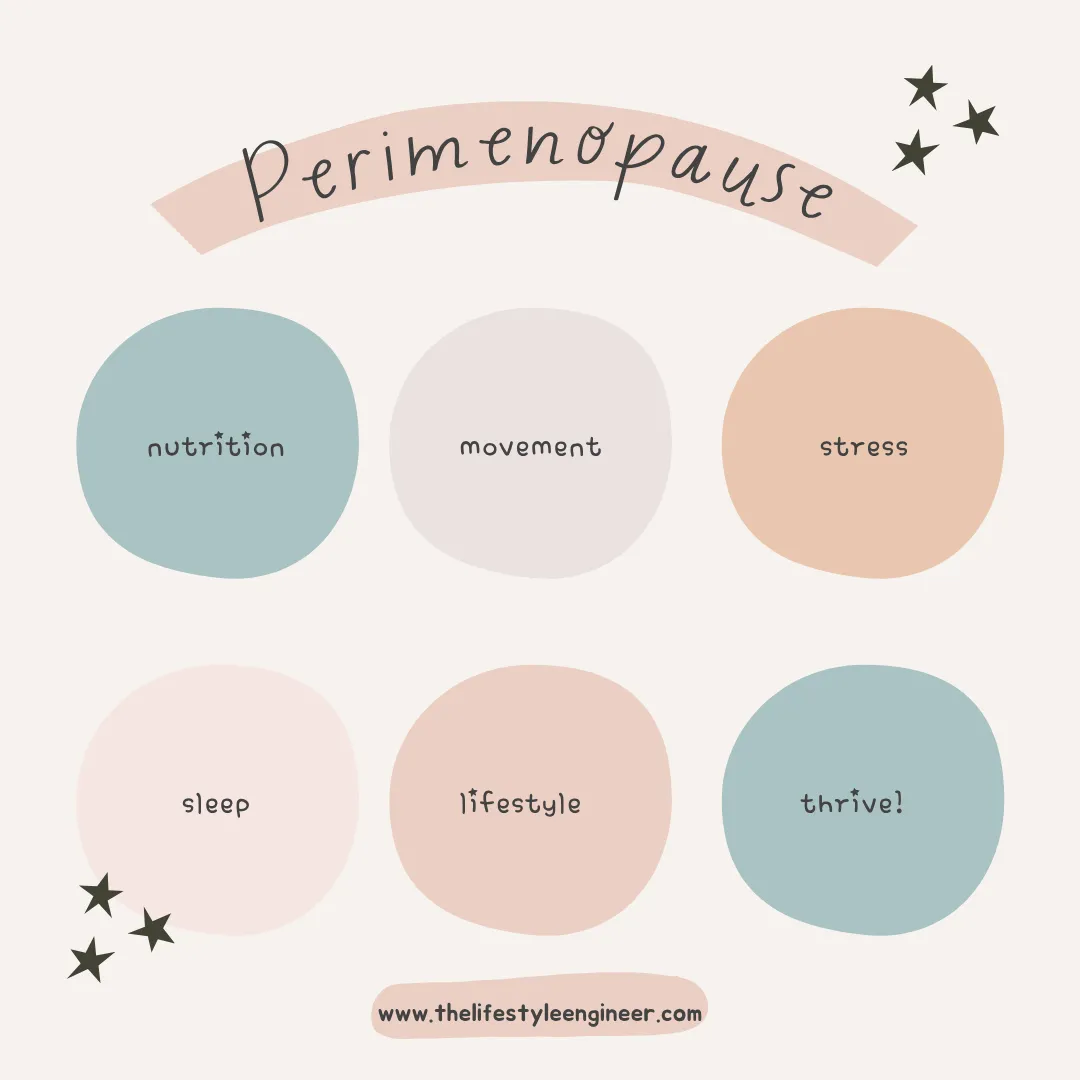The Lifestyle Library
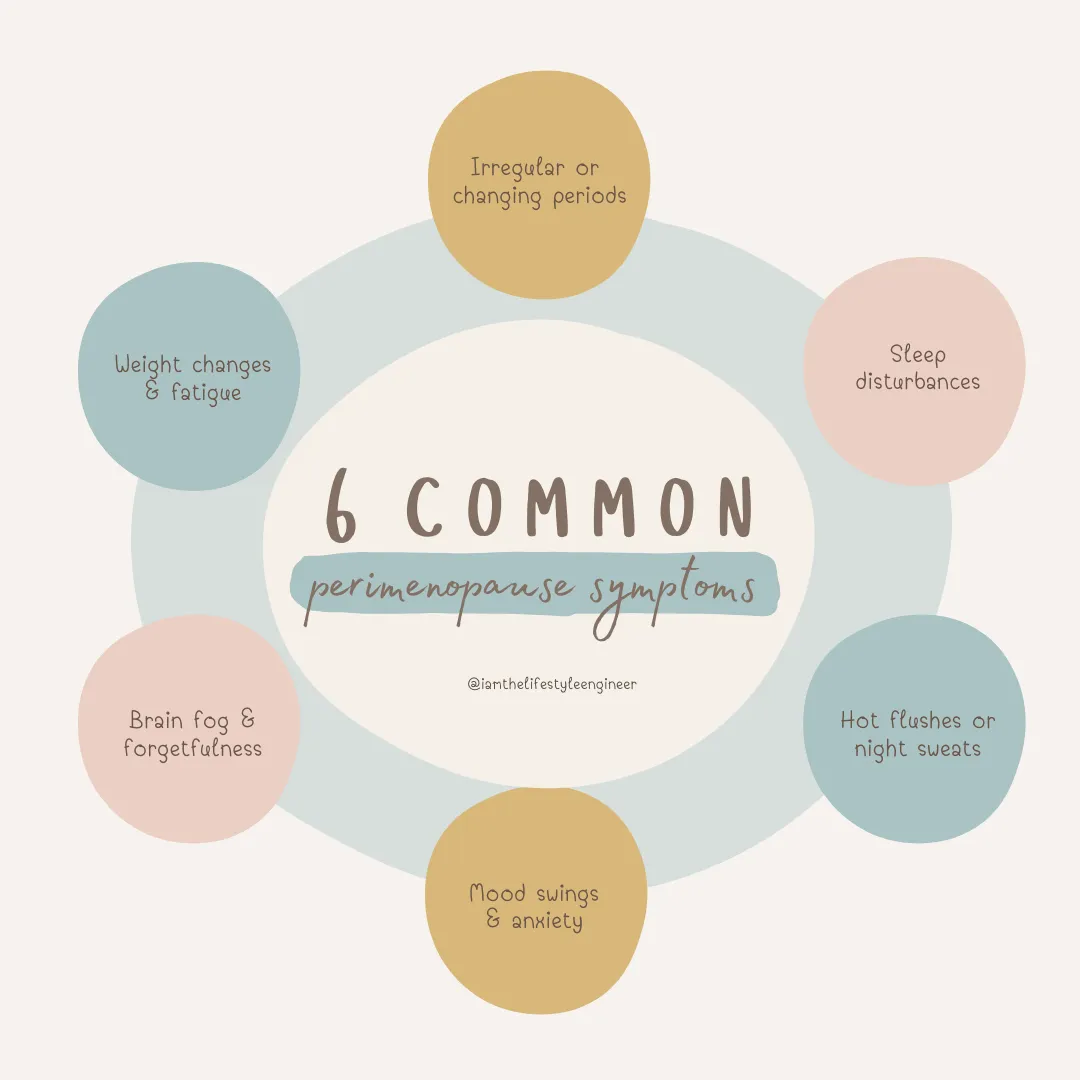
The Most Common Symptoms of Perimenopause
The Most Common Symptoms of Perimenopause
You might have noticed changes creeping in — the kind that don’t quite make sense at first. One month your period’s early, the next it’s late. You wake up at 3am for no reason. Your patience has gone on permanent holiday, and you’re crying over dog food commercials.
If any of this sounds familiar, you’re possibly in perimenopause.
Perimenopause is the transition phase leading up to menopause, when your hormone levels — especially oestrogen and progesterone — start to fluctuate. It can begin anywhere from your late 30s to mid-40s and last several years (maybe even a decade). The changes can be subtle at first, then more noticeable as your cycle becomes less predictable.
While everyone’s experience is different, there are some common signs that your hormones are shifting. Understanding what’s happening can help you feel less overwhelmed and more empowered to support your body through the transition.
Irregular or Changing Periods
One of the earliest and most obvious symptoms is a shift in your menstrual cycle. Periods may become shorter, longer, heavier, lighter — or all of the above. You might skip a month, then have two cycles close together.
These changes happen because ovulation becomes less consistent as oestrogen and progesterone levels fluctuate. It’s not unusual for cycles to vary dramatically in the years before menopause.
👉 When to seek support: If your bleeding is extremely heavy, prolonged, or associated with pain, it’s worth checking in with your GP to rule out other causes such as fibroids or thyroid changes.
Sleep Disturbances
Waking up at 3am wide awake? You’re not alone. Many women notice their sleep becomes lighter, more fragmented, or just plain elusive.
This can be linked to dropping progesterone (which has a calming effect) and fluctuating oestrogen, which affects temperature regulation. Add stress and night sweats into the mix, and it’s easy to see why so many women feel constantly exhausted.
Small habits — like keeping your room cool, limiting alcohol, and winding down without screens — can make a surprisingly big difference.
Hot Flushes and Night Sweats
That sudden wave of heat that seems to come out of nowhere? Classic perimenopause.
Hot flushes and night sweats occur because oestrogen plays a role in regulating your body temperature. When levels dip and fluctuate, your brain can become a bit “confused” about what’s hot and what’s cold.
While they can be uncomfortable, lifestyle strategies like reducing caffeine, managing stress, and wearing breathable fabrics can help. Some women also find herbal or medical options effective — the key is finding what works for you.
Mood Swings and Anxiety
Hormonal changes can affect neurotransmitters like serotonin, dopamine, and GABA, which influence mood and calm. Combine that with poor sleep, life stress, and midlife pressures — and it’s no wonder many women feel irritable, anxious, or flat.
If you’ve noticed you’re less tolerant, more tearful, or just not feeling “like yourself,” know this: it’s not a personality change — it’s a biological one. And with the right support, your emotional balance can return.
Movement, connection, and balanced nutrition all help stabilise mood — as can magnesium, omega-3s, and prioritising rest.
Brain Fog and Forgetfulness
Losing your train of thought mid-sentence? Forgetting words you’ve known forever? This is one of the most frustrating symptoms, and again, you’re not imagining it.
Fluctuating oestrogen impacts blood flow to the brain and neurotransmitter activity, which can temporarily affect memory and focus.
The good news: this fog isn’t permanent. Supporting your sleep, nutrition (especially protein, omega-3s and B vitamins), and stress can dramatically improve clarity and concentration.
Weight Changes and Fatigue
Even if you haven’t changed your eating habits, you might notice weight gain — particularly around the middle. This is due to shifts in oestrogen, insulin sensitivity, and muscle mass as well as an increase in cortisol which promotes the storage of fat around our bellies.
It’s not about dieting harder — it’s about supporting your metabolism differently: focusing on protein, strength training, and recovery. When your hormones are shifting, your body needs nourishment, not restriction.
You’re Evolving
Perimenopause can feel like a storm some days — unpredictable, emotional, confusing. But it’s also a powerful phase of recalibration.
Your body isn’t turning against you; it’s communicating. It’s asking for care, rest, nourishment, and a gentler pace.
When you understand what’s happening inside your body, you can make choices that support balance instead of fighting against it.
You deserve to feel strong, clear, and connected again — and you absolutely can.
If this all sounds familiar, know that you’re not alone — and there’s support waiting for you. Download my free e-book 'From Frazzled to Fabulous'. It provides 5 simple ways to support your hormones so you can feel more like yourself again.
Perimenopause isn’t the end of your story — it’s the beginning of your next chapter. 🌙




